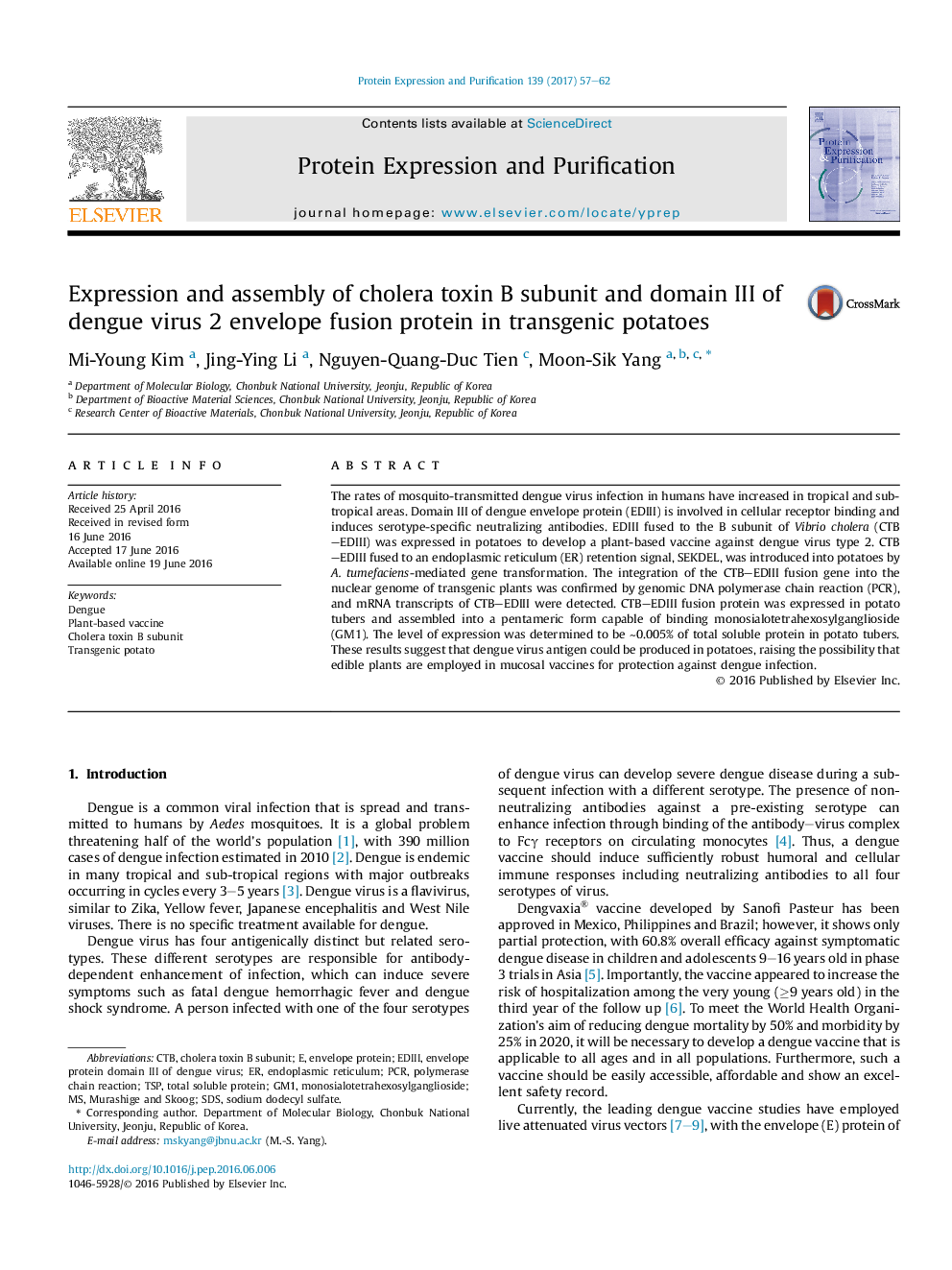| Article ID | Journal | Published Year | Pages | File Type |
|---|---|---|---|---|
| 5516018 | Protein Expression and Purification | 2017 | 6 Pages |
â¢Dengue antigen fusion protein with CT (CTB-EDIII) was expressed in potatoes.â¢The functional activity of fusion protein was evaluated by GM1 ELISA assay.â¢The GM1 binding affinity suggested its potential as an oral vaccine candidate.
The rates of mosquito-transmitted dengue virus infection in humans have increased in tropical and sub-tropical areas. Domain III of dengue envelope protein (EDIII) is involved in cellular receptor binding and induces serotype-specific neutralizing antibodies. EDIII fused to the B subunit of Vibrio cholera (CTB-EDIII) was expressed in potatoes to develop a plant-based vaccine against dengue virus type 2. CTB-EDIII fused to an endoplasmic reticulum (ER) retention signal, SEKDEL, was introduced into potatoes by A. tumefaciens-mediated gene transformation. The integration of the CTB-EDIII fusion gene into the nuclear genome of transgenic plants was confirmed by genomic DNA polymerase chain reaction (PCR), and mRNA transcripts of CTB-EDIII were detected. CTB-EDIII fusion protein was expressed in potato tubers and assembled into a pentameric form capable of binding monosialotetrahexosylganglioside (GM1). The level of expression was determined to be â¼0.005% of total soluble protein in potato tubers. These results suggest that dengue virus antigen could be produced in potatoes, raising the possibility that edible plants are employed in mucosal vaccines for protection against dengue infection.
